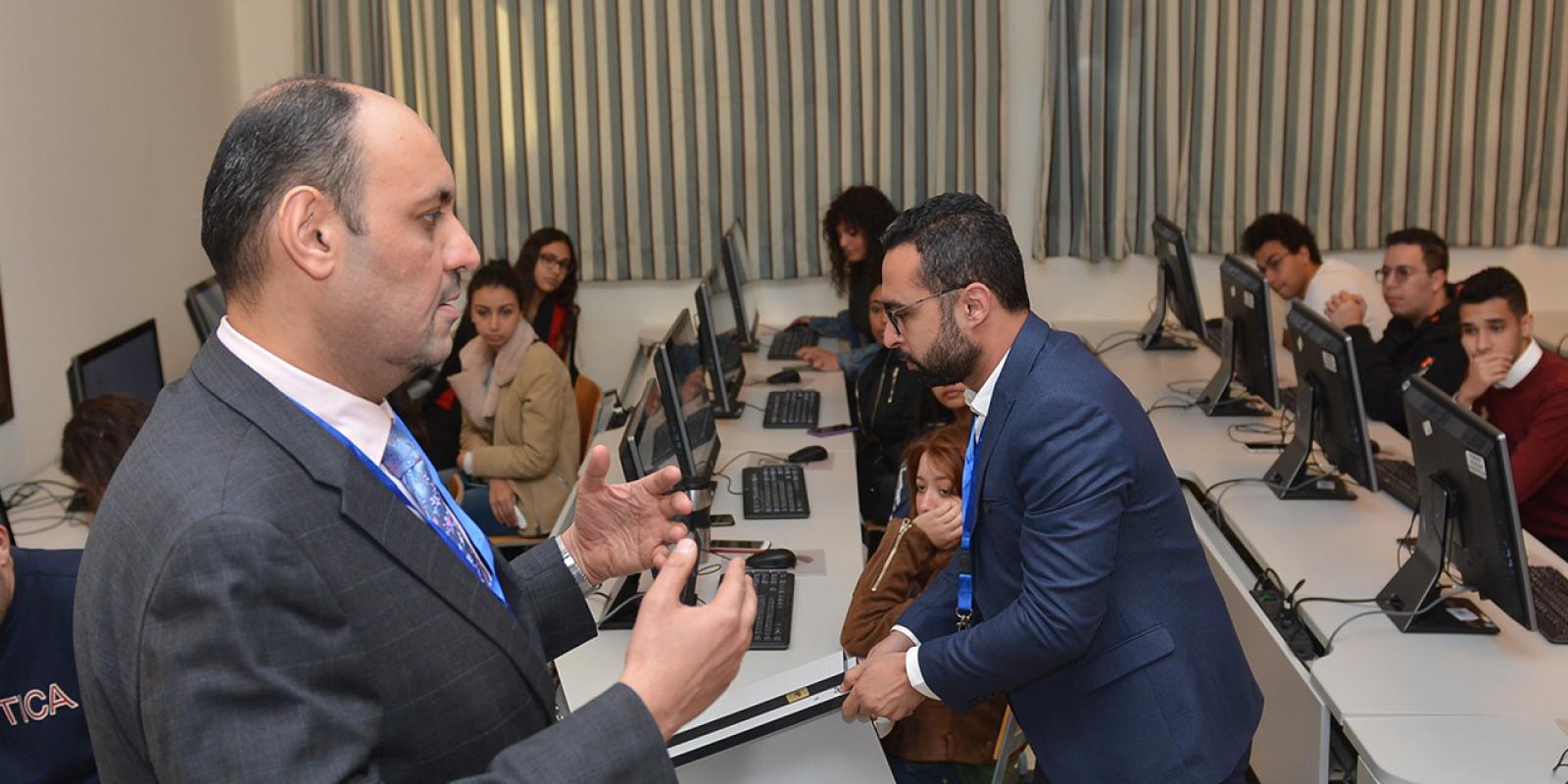
AUC School of Business Launches Behavioral and Economic Decision Making (BEDM) Lab
Representing one of only two experimental economics labs in the Middle East region, the lab focuses on experimental and behavioral economics through simple monitor-based games with student subjects to measure factors essential to the economic decision-making process.
On December 3, the BEDM lab was launched during the “Behavioral Economic Solutions for Egypt 2019” conference, the first conference on behavioral economics to be held in Egypt and bringing together a group of high-profile international experts in behavioral sciences to explore the applications and policy solutions that are provided by behavioral economics-the study of psychology as it relates to the economic decision-making process of individuals and institutions- and introduce the latest findings and techniques on the topic.
The lab operates through the presence of three essential components; monitors, experimenters, and human beings. At the AUC School of Business BEDM Lab, the subjects are the students, who receive a monetary reward for participating in the lab.
The experimenting process is a simple one where students, surrounded by mobile partitions to reserve their privacy, are presented with an interactive set of 36 questions placing them in hypothetical economic choice situations where they are required to choose, from a set of options, the path they would take in this situation. There are no correct or wrong answers for the questions and the answers are strictly confidential. Rather, the questions measure certain human factors and behaviors and their degree, such as persistence for instance.
The essence of such experiments is to test economic impulses, how humans respond to economic choices and evaluate the factors that make us more or less likely to contribute economically and to what extent, yet in a controlled and systematic manner. They also reveal our decision-making processes in the context of reward and punishment. The software being used in the lab is the z-Tree software, which is widely used for developing and carrying out economic experiments through a simple and compact language, which allows for easy development of experiments.
The results of the experiments are then used to identify key behavioral problems in certain contexts, which could be individuals on a societal level; by entrepreneurs, businesses, organizations, institutions, or even governments. Analysis of such research output leads to painting a full picture of behavioral issues, which then allow for interventions and creating frameworks to eliminate or change the behaviors in a way that would produce more positive outcomes for the intended beneficiaries.
According to Mohamed El Komi, associate professor of economics at AUC School of Business and the BEMD Lab director, the lab is set to conduct research that has never been done before in the region, claiming that the groundwork for the lab has already been in the works for 10 years.
The lab will operate in three main domains, explains El Komi: “One is improving public policy by doing capacity building and designing policies for the government. A second is for organizations whether they are businesses or NGOs to help them improve their customer relationships, improve their resources and improve their management styles. The third one is, of course, academic: doing research collaboration with other people and the international community and teaching our students using experiential learning. Because when you use experiments in teaching, when you do it yourself, you really learn it.”
The lab is also aimed at assisting Egypt in tackling its poverty rate. In fact, the lab is currently involved in a project on stereotyping in the workplace, particularly with regards to people of different religions and varying levels of religiosity. The research is being carried out in the United Kingdom, and on people from predominantly Christian countries, in addition to Egypt.
The Egyptian community was very much in need of such a lab, particularly taking into consideration that behavioral interventions are not very common with regards to policy. Now, with the inauguration of the lab, the Egyptian business community can take on a different stance and businesses can actually improve their reward systems, pay attention to competitiveness, measure trust levels, and more. In addition, the data collection, research, and analysis conducted by the BEDM Lab will support the creation of a ‘nudge unit’ in the Egyptian government, which looks at behavioral economics and psychology to support a human behavior-based policy, as well as improve services and provide efficient resource allocation.
“We as behavioral scientists or behavioral economists, we just believe in incremental change. If we can change something little by little, we are very happy to do this. We hope good changes will stick,” El-Komi expresses.
